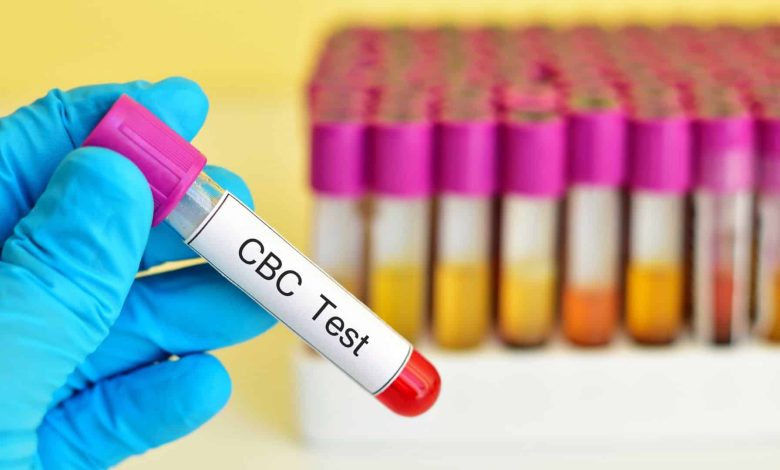Can Low Iron Cause Anxiety?

Anxiety disorders affect millions worldwide, profoundly impacting emotional well-being and daily life. Traditionally viewed through a psychological lens, recent research underscores a surprising connection between low iron levels and anxiety symptoms, shedding light on a crucial aspect of holistic care and treatment paradigms.
Iron deficiency, a widespread nutritional concern, occurs when the body lacks sufficient iron for optimal function. This deficiency can arise from inadequate dietary intake, conditions affecting iron absorption (like celiac disease or gastric surgeries), or increased iron needs (such as during pregnancy or rapid growth phases in children). Iron is an essential mineral involved in various bodily processes, including oxygen transport, cellular energy production, and enzymatic reactions crucial for neurological function.
Symptoms of iron deficiency include fatigue, weakness, pale skin, and difficulty concentrating. Diagnosing iron deficiency typically involves blood tests to measure serum ferritin, hemoglobin, and iron levels, providing crucial insights into a person’s iron status. Addressing iron deficiency early is essential as it not only prevents the progression to anemia but also mitigates its impact on mental health.
Iron’s Essential Role in Mental Health
Beyond its role in transporting oxygen and supporting cellular function, iron plays a pivotal role in mental health. It is integral to neurotransmitter synthesis, including dopamine and serotonin, which are vital for mood regulation and emotional stability. Iron deficiency disrupts these processes, contributing to imbalances in neurotransmitter levels that can exacerbate anxiety symptoms.
Moreover, iron is necessary for enzymatic reactions essential for neuronal function. Deficiencies in iron can impair these functions, impacting brain regions responsible for emotional regulation and stress response. This disruption reduces the brain’s resilience to stressors, amplifying vulnerability to anxiety-related symptoms. Understanding these mechanisms underscores the critical role of iron in maintaining not only physical but also mental well-being.
Physiological Pathways Linking Low Iron to Anxiety
- Neurotransmitter Imbalance: Decreased iron levels can lead to reduced synthesis of dopamine and serotonin, affecting mood regulation and stress response. This imbalance in neurotransmitters is closely linked to heightened anxiety symptoms. Serotonin, known as the “feel-good” neurotransmitter, influences mood, emotions, and sleep. Dopamine plays a role in motivation, reward processing, and pleasure.
- Oxygen Deprivation in the Brain: Iron is crucial for hemoglobin synthesis, the protein responsible for transporting oxygen in the blood. Insufficient iron compromises oxygen delivery to the brain, affecting cognitive function and emotional processing. This oxygen deprivation can trigger feelings of restlessness, unease, and panic—common symptoms associated with anxiety disorders. Brain regions sensitive to oxygen levels include those involved in decision-making, memory, and emotional responses.
- Physical Symptoms Intensifying Anxiety: Iron deficiency often leads to anemia, characterized by symptoms like fatigue, weakness, and occasionally shortness of breath. These physical manifestations not only result from low iron but can also mimic or exacerbate anxiety sensations, compounding the overall distress experienced. Anemia affects energy levels, causing individuals to feel tired or weak. These symptoms can contribute to feelings of anxiety, as individuals may struggle to perform daily tasks or engage in social activities.
- Impact on Stress Response: The body’s stress response system, governed by the hypothalamic-pituitary-adrenal (HPA) axis, is sensitive to iron levels. Iron deficiency disrupts this axis, leading to dysregulation in cortisol, a stress hormone. Elevated cortisol levels, persistently high due to iron deficiency, are strongly associated with increased anxiety and stress responses. Cortisol influences metabolism, immune response, and mood regulation. Dysregulation of cortisol levels can contribute to feelings of anxiety or overwhelm.
Navigating Diagnosis Challenges
Diagnosing iron deficiency-related anxiety can be complex due to overlapping symptoms with primary anxiety disorders. Distinguishing between physical manifestations of low iron and purely psychological symptoms requires thorough health assessments, including detailed blood tests and evaluations by healthcare professionals. Healthcare providers may use laboratory tests, such as complete blood count (CBC) and ferritin levels, to assess iron status accurately.
Additionally, individuals may undergo a physical examination to evaluate symptoms and rule out other medical conditions. Mental health professionals may conduct interviews or assessments to understand the impact of anxiety symptoms on daily functioning.
Strategies for Managing Low Iron-Related Anxiety
Addressing low iron as a potential contributor to anxiety involves a multifaceted approach:
- Iron Supplementation: Depending on severity, healthcare providers may recommend iron supplements or intravenous therapy to restore iron levels effectively. Iron supplements are available in various forms, including ferrous sulfate, ferrous gluconate, and ferrous fumarate. Healthcare providers may recommend a specific type of iron supplement based on an individual’s needs and tolerance. Intravenous (IV) iron therapy may be recommended for individuals who are unable to absorb oral iron supplements effectively. IV iron therapy involves administering iron directly into the bloodstream, bypassing the digestive system.
- Dietary Adjustments: Incorporating iron-rich foods into daily meals is crucial. Animal sources such as red meat, poultry, and fish provide heme iron, which is more readily absorbed. Plant-based sources like lentils, beans, spinach, and fortified cereals provide non-heme iron, often requiring vitamin C intake to enhance absorption. Cooking foods in cast-iron pans can also slightly increase iron content in meals. Individuals may benefit from working with a registered dietitian or nutritionist to develop a meal plan that includes a variety of iron-rich foods. Meal planning can help ensure individuals meet their daily iron needs and support overall health.
- Enhancing Absorption: Pairing iron-rich foods with sources of vitamin C can optimize iron absorption. Vitamin C enhances the absorption of non-heme iron from plant-based foods. Citrus fruits, strawberries, bell peppers, and broccoli are excellent sources of vitamin C. Individuals may benefit from including vitamin C-rich foods in meals or snacks containing iron-rich foods. Conversely, individuals should avoid consuming foods or beverages that inhibit iron absorption, such as coffee, tea, or calcium-rich foods, during meals containing iron-rich foods. Inhibition of iron absorption can reduce the amount of iron absorbed by the body and affect iron status over time.
- Psychological Interventions: Cognitive-behavioral therapy (CBT), mindfulness techniques, and stress management strategies can complement medical treatments, helping individuals better manage anxiety symptoms. CBT is a type of talk therapy that helps individuals identify and change negative thought patterns and behaviors. By addressing underlying anxiety triggers and developing coping strategies, individuals can reduce anxiety symptoms and improve overall well-being. Mindfulness techniques, such as meditation or deep breathing exercises, can help individuals relax and manage stress. Stress management strategies, such as exercise or hobbies, can help individuals cope with stressors and improve mental health.
Conclusion
Like what you read above? read more writing like this on melano mag. The intricate relationship between low iron levels and anxiety underscores the interconnected nature of physical health and mental well-being. Understanding how iron deficiency impacts mental health underscores the importance of comprehensive care that addresses both physiological and psychological factors.
By incorporating iron-rich foods, appropriate supplementation, and psychological support, individuals can effectively manage both iron deficiency and associated anxiety symptoms, promoting overall wellness and improved quality of life. Healthcare providers play a key role in diagnosing and treating iron deficiency-related anxiety.
By conducting thorough assessments and developing individualized treatment plans, healthcare providers can help individuals achieve optimal iron status and improve mental health outcomes.









